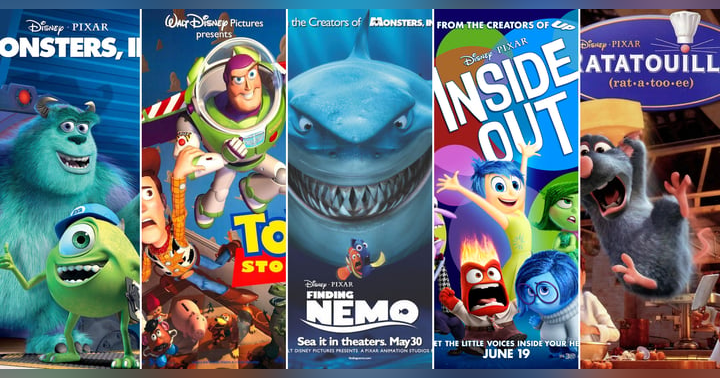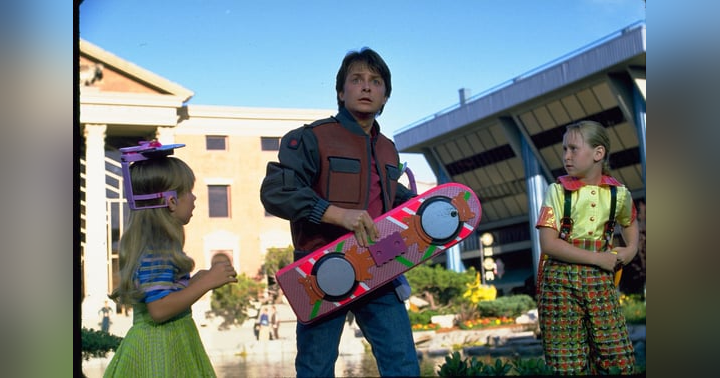Soundtracks That Shaped a Generation: Iconic Movie Music of the 80s and 90s

Music has always been integral to the cinematic experience, but the 80s and 90s movie soundtracks took this relationship to new heights. During these decades, film soundtracks didn't just accompany the action on screen—they became cultural landmarks in their own right. From anthems that defined summer blockbusters to alternative tracks that underscored indie hits, the music of this era resonated deeply with audiences. Let’s journey through some of the most unforgettable soundtracks that shaped a generation from these decades and explore how they enhanced the cinematic experience and left a lasting cultural impact.
Top Gun (1986)
Kenny Loggins' "Danger Zone" and Berlin's "Take My Breath Away" are more than just songs; they are anthems that capture the essence of "Top Gun." The high-octane energy of "Danger Zone" perfectly mirrors the thrilling dogfight sequences, while "Take My Breath Away" adds an emotional depth to Maverick and Charlie’s romance. The soundtrack, produced by Giorgio Moroder, won the Academy Award for Best Original Song, cementing its place in pop culture history. These tracks didn't just support the film—they propelled it, making "Top Gun" a defining movie of the 80s.
Dirty Dancing (1987)
When people think of "Dirty Dancing," their minds immediately go to the iconic lift scene set to "(I've Had) The Time of My Life." This Oscar-winning song by Bill Medley and Jennifer Warnes encapsulates the heart and soul of the movie. The soundtrack combines '60s classics with original songs, creating a nostalgic yet fresh sound that appeals to multiple generations. Hits like "Hungry Eyes" by Eric Carmen and Patrick Swayze's "She's Like the Wind" became chart-toppers, proving that the music was as essential to the film’s success as the storyline and choreography.
The Breakfast Club (1985)
Simple Minds' "Don't You (Forget About Me)" is synonymous with "The Breakfast Club." This anthem of teenage rebellion and self-discovery closes the film with hope and unity among the diverse high school students. The soundtrack, featuring artists like Wang Chung and Keith Forsey, perfectly captures the angst and aspirations of the youth in the 80s. It’s a quintessential example of how music can define a film's emotional core and resonate with audiences long after the credits roll.
Purple Rain (1984)
Prince's "Purple Rain" isn't just a movie soundtrack; it's a landmark album in its own right. The film and its music are inextricably linked, with tracks like "When Doves Cry" and "Let's Go Crazy" driving the narrative and reflecting the personal and professional struggles of the character played by Prince. The soundtrack was a commercial success, earning Prince an Academy Award for Best Original Song Score and solidifying his status as a musical genius. It’s a prime example of how a soundtrack can transcend the movie it accompanies, becoming a cultural phenomenon.
Pulp Fiction (1994)
Quentin Tarantino’s "Pulp Fiction" revived many forgotten gems from the 60s and 70s, blending them into a tapestry that’s as eclectic and memorable as the film’s narrative. The use of Dick Dale’s "Misirlou" in the opening credits sets an adrenaline-fueled tone that carries through the movie. Tracks like "Son of a Preacher Man" by Dusty Springfield and "You Never Can Tell" by Chuck Berry provide ironic and iconic backdrops to the film's various vignettes. Tarantino’s keen ear for music redefined how soundtracks could be used to enhance storytelling.
Trainspotting (1996)
"Trainspotting," directed by Danny Boyle, captured the raw and gritty essence of 90s youth culture. Its soundtrack, featuring a mix of punk, rock, and electronic music, played a crucial role in this depiction. Iggy Pop’s "Lust for Life" and Underworld’s "Born Slippy" bookend the film with frenetic energy, reflecting the chaotic lives of its characters. The soundtrack became a commercial success, introducing many listeners to bands like Blur, Pulp, and Lou Reed. It’s a perfect example of how a film can influence musical tastes and trends.
The Lion King (1994)
Hans Zimmer’s sweeping score and Elton John’s unforgettable songs make "The Lion King" one of the most beloved animated films ever. Tracks like "Circle of Life" and "Can You Feel the Love Tonight" won Academy Awards and became instant classics, appealing to audiences of all ages. The soundtrack blends African rhythms with contemporary pop, creating a rich and immersive auditory experience that enhances the film's epic narrative.
Reality Bites (1994)
"Reality Bites" captured the spirit of Generation X with its soundtrack, which features a mix of alternative rock and grunge. The standout track, Lisa Loeb’s "Stay (I Missed You)," became an anthem for the 90s youth, thanks to its heartfelt lyrics and catchy melody. The soundtrack also includes songs by bands like The Knack, Big Mountain, and Dinosaur Jr., reflecting the eclectic tastes of the decade and resonating with the film’s themes of post-college angst and aspiration.
The Bodyguard (1992)
Whitney Houston’s powerful rendition of "I Will Always Love You" transformed "The Bodyguard" into a cultural phenomenon. The soundtrack, which also includes hits like "I Have Nothing" and "Run to You," showcases Houston’s incredible vocal range and emotional depth. It became the best-selling soundtrack of all time, proving the immense impact a well-curated soundtrack can have on a film's success and its legacy in popular culture.
Clueless (1995)
"Clueless" is a quintessential 90s film, and its soundtrack is a perfect reflection of the era's pop culture. Featuring songs by artists like No Doubt, The Mighty Mighty Bosstones, and Coolio, the music underscores the vibrant and eclectic style of the film. The soundtrack captures the spirit of teenage life in the 90s, blending ska, hip-hop, and pop-punk in a way that feels both timeless and distinctly of its time.
Conclusion
The soundtracks of the 80s and 90s were more than just background music—they were integral to the films' identities and their impact on culture. They enhanced storytelling, created emotional connections, and often became as iconic as the films. Whether through the rebellious anthems of "The Breakfast Club" or the epic ballads of "The Bodyguard," these soundtracks have left an indelible mark on cinema and music history, shaping a generation and continuing to influence new audiences today.














